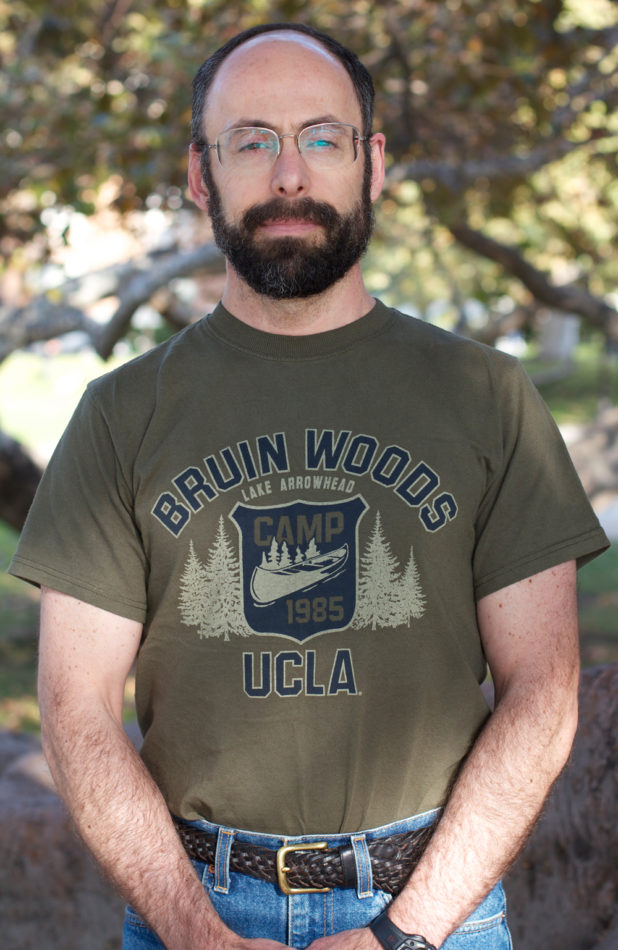Pomidor Quixote
Daily Stormer
September 26, 2019
Matthew and Jennifer Harris
Certain researchers are interested in figuring out the reasons why you’re so mean.
The Bedari Foundation, established by philanthropists Jennifer and Matthew C. Harris, has given $20 million to the UCLA College to establish the UCLA Bedari Kindness Institute.
The institute, which is housed in the division of social sciences, will support world-class research on kindness, create opportunities to translate that research into real-world practices, and serve as a global platform to educate and communicate its findings. Among its principal goals are to empower citizens and inspire leaders to build more humane societies.
…
The institute, which will begin operating immediately, will take an interdisciplinary approach to understanding kindness — through evolutionary, biological, psychological, economic, cultural and sociological perspectives. It will focus on research about the actions, thoughts, feelings and social institutions associated with kindness and will bring together researchers from across numerous disciplines at UCLA and at external organizations.
The inaugural director of the institute is Daniel Fessler, a UCLA anthropology professor whose research interests include exploring how witnessing acts of remarkable kindness can cause an uplifting emotional experience that in turn motivates the observer to be kind. Studies by Fessler and his colleagues have shed light on why some people are open to that type of “contagious kindness” experience.
Daniel Fessler
“Our vision is that we will all live in a world where humanity discovers and practices the kindness that exists in all of us,” said Matthew Harris, the foundation’s co-founder and a 1984 UCLA graduate. “Much research is needed to understand why kindness can be so scarce in the modern world. As we seek at Bedari to bridge the divide between science and spirituality, through the establishment of the UCLA Bedari Kindness Institute we hope to educate and empower more and more people in the practice of kindness.”
If his premise is that kindness exists in all of us, it’s easy to see why he’s oblivious to the reason why kindness is scarce in the modern world.
Keep in mind that these are fancy university research-scientist types talking about how “kindness exists in all of us” as if they had scientific data to back up that claim. Obviously, they don’t have any data to back up that claim. It’s just what they feel, wish, or want you to believe.
Kindness is not something you find in every humanoid.
It’s a white people thing, and the reason it is scarce in the modern world is that white people are scarce in the modern world.
Already, a range of researchers at UCLA are studying the types of questions that will be the basis of the institute’s work. For example, UCLA anthropologists are examining how kindness spreads from person to person and group to group. UCLA sociologists are analyzing how people who regularly act unkind might be encouraged to engage in kind acts instead, and UCLA psychologists are researching how kindness can improve people’s moods and reduce symptoms of depression. Others are pursuing research on changes in neurobiology and behaviors resulting from mindfulness, and how those changes can influence kindness and people’s mental, physical and social well-being.
…
The Kindness Institute will provide seed funding for research projects that examine the social and physical mechanics of kindness and how kindness might be harnessed to create more humane societies. It also will provide mindfulness awareness training to students, faculty and staff and in underserved Los Angeles communities, and host an annual conference at which presenters will examine new discoveries in kindness research, among other activities.
This may sound good at first because that’s how it is intended to sound, but it’s a facade for Jews to research how to squeeze more money out of white people while making white people pay for it.
It is research about social-engineering strategies.
They literally want to research how to make “unkind” people be more “kind.” Their research is about discovering better ways to harness white people’s selflessness and empathy.
It’s about manipulation.
White people are the only ones vulnerable to this “kindness” thing that can contribute anything to anyone, so even if they somehow managed to make blacks and browns kinder, whites wouldn’t really gain anything in return.
Considering the recurring topic of “things that would be good in an all-white society but that are a nightmare under the overlord’s rule,” if something sounds good, remember that the ones in charge are not on your team.
 Daily Stormer The Most Censored Publication in History
Daily Stormer The Most Censored Publication in History






